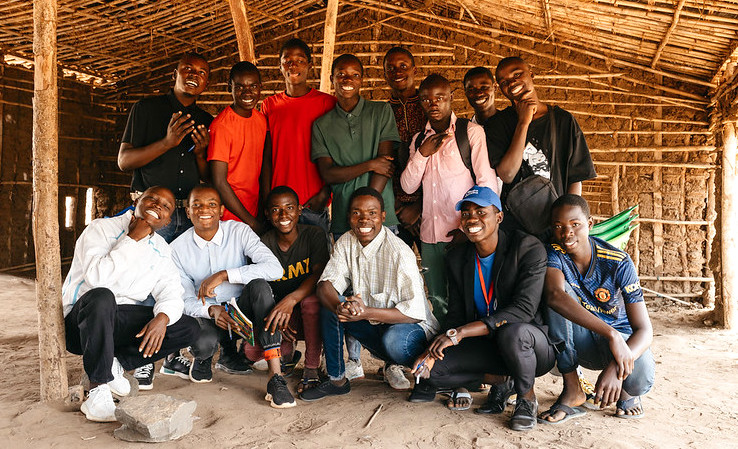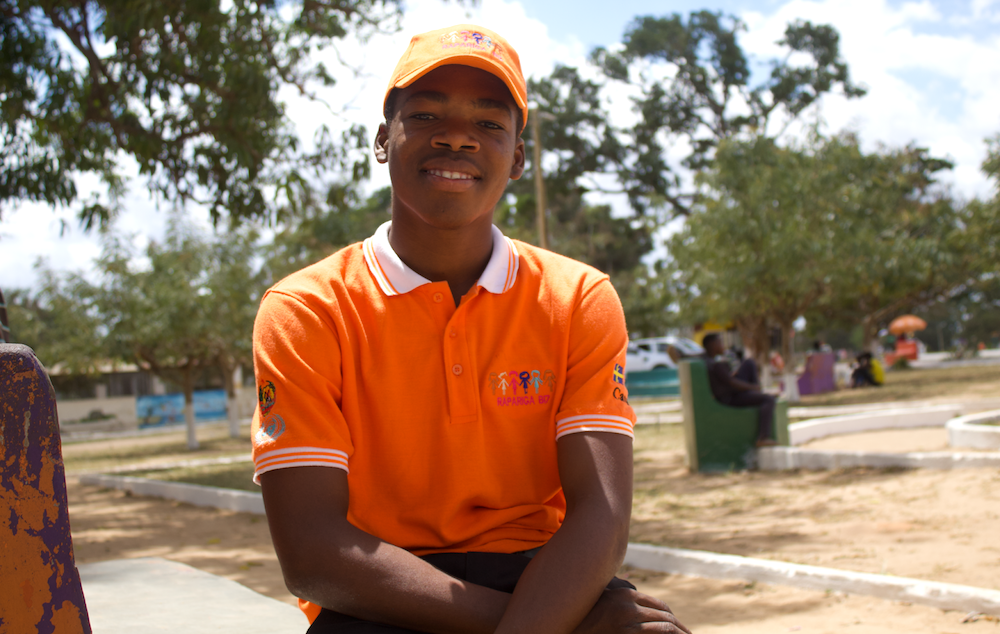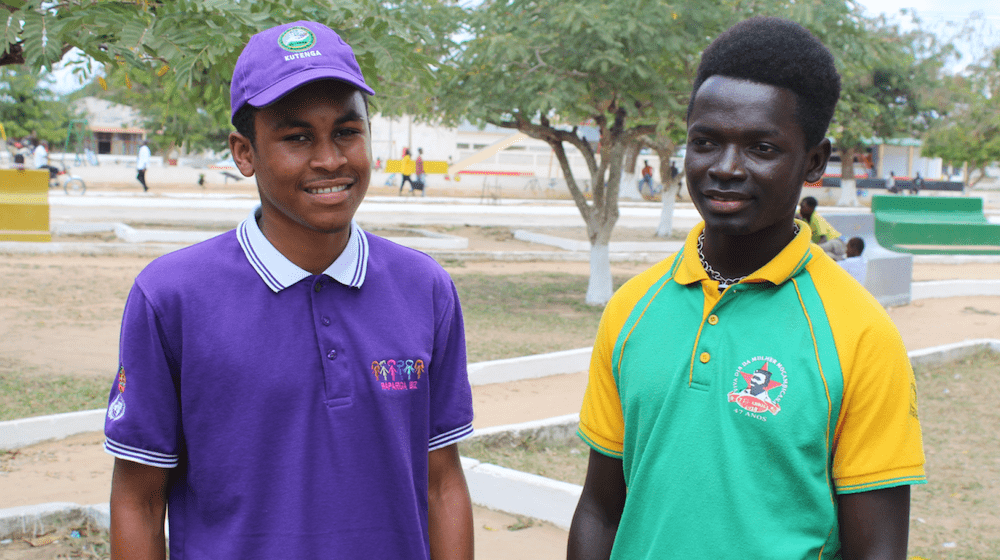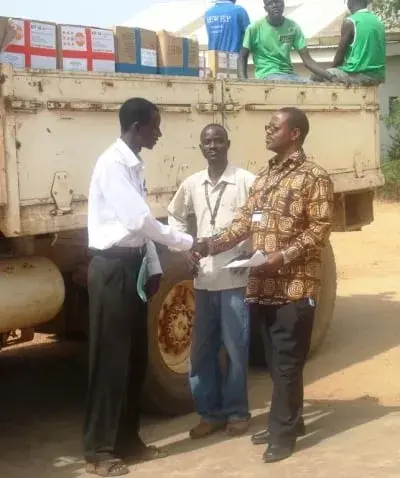NAMPULA PROVINCE, Mozambique—At seventeen, Vasco César is rethinking some of his views, especially about women. "I always thought that because I was a man, I had to have more privileges than my sisters, and I shouldn't do certain household tasks," he says.
I always thought that because I was a man, I had to have more privileges than my sisters.
His change in attitude has been fuelled by a group of young men and boys aged 17 to 24, who meet to discuss the values and behaviours they should demonstrate if they want to contribute to an equitable and progressive society. From the group’s discussion of issues related to sexual and reproductive health and rights, including violence against women and girls, he now leans toward a different perspective to the one he grew up with.
“I changed the way I see the world,” he says, including that “when a girl says ‘no’, it is no.”

Every Saturday, Helton Bruno, 20, brings together a group of about 20 young men, who range in age from 17 to 24 years, in Nampula province in northern Mozambique. He asks them questions to spark discussions, with the aim of changing the mindsets of young people about practices that are harmful to youth and their communities.
“The joy of spreading knowledge is my greatest motivation,” says Mr. Bruno. “Because it is a young person speaking to another young person, the message is easily taken in.”
The discussions are casual and free from judgment. Led by a peer, they are neither intimidating, nor given in an unfamiliar language.
Raising awareness of rights
Mentorship sessions like this one are held weekly for a network of young people that engages with other members of their community to increase knowledge and awareness of individual rights, especially the rights of women and girls.
In Nampula and Zambezia provinces, a group of 450 mentors has been trained to lead sessions under the adolescent sexual and reproductive health programme, Rapariga Biz. The programme is funded by the governments of Canada and Sweden, and the multi-donor UNFPA-UNICEF Joint Global Programme to End Child Marriage.
I am happy to see that the youth I mentor are aware that they must respect the rights of others.
Since these mentorship sessions began, more than 9,600 boys and young men have taken part. These empowered young people are playing a critical role in reflecting and assessing individual and collective behaviours that are harmful and hinder gender equality.
Mr. Bruno is proud to be contributing to positive behaviour change among his peers. “I am happy to see that the youth I mentor are aware that they must respect the rights of others,” he says.
Against a backdrop of high rates of child marriage and early pregnancy in Nampula province, this intervention is critical. Nearly one in two girls aged 15 to 19 are young mothers (IMASIDA 2015).

Like Mr. Bruno, seventeen-year-old Marto Abel has become a mentor to his peers. He uses the platform to stress that to end gender-based violence, young people need to change their mindsets, and boys must be equipped with the tools they need to express themselves in a non-violent and respectful way.
I see positive transformation in the behaviour and attitude of the group I mentor. They realize equality must exist between girls and boys.
“I see positive transformation in the behaviour and attitude of the group I mentor,” says Marto. “Nowadays, they realize the equality and equity that must exist between girls and boys.”
Agents of change
Thanks to Rapariga Biz, Marto considers himself a change agent, as he advises and refers adolescents and young people to seek reproductive health services. “In my group, there is a particular interest in discussing issues related to sexuality, or sexual and reproductive health. I have been advising my mentees to visit the SAAJ (youth-friendly health service).”
The Rapariga Biz programme uses a holistic approach to life skills to empower adolescent girls and young women to prevent child marriage and early and unwanted pregnancies, and encourages girls to stay in school or return to school. Funded by the governments of Canada and Sweden, Rapariga Biz is implemented by UNFPA, together with UNICEF, UN Women and UNESCO.
The UNFPA-UNICEF Global Programme to End Child Marriage works to eliminate child marriage through providing technical support to key partners, including the government and national NGOs. This includes coordination and capacity building, awareness-raising campaigns, mentoring sessions, with the involvement of community and religious leaders. The programme is funded by the governments of Belgium, Canada, Netherlands, Norway, United Kingdom, Italy and the European Commission, through the Spotlight Initiative and Zonta International.




